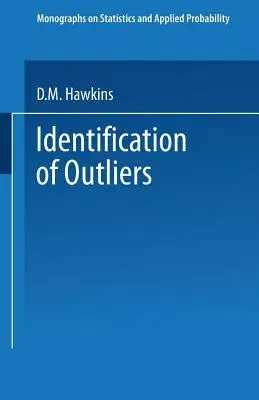D Hawkins
(Author)Identification of Outliers (1980)Paperback - 1980, 21 April 2014

Qty
1
Turbo
Ships in 2 - 3 days
In Stock
Free Delivery
Cash on Delivery
15 Days
Free Returns
Secure Checkout
Part of Series
Monographs on Statistics and Applied Probability
Print Length
188 pages
Language
English
Publisher
Springer
Date Published
21 Apr 2014
ISBN-10
9401539960
ISBN-13
9789401539968
Description
Product Details
Author:
Book Edition:
1980
Book Format:
Paperback
Country of Origin:
NL
Date Published:
21 April 2014
Dimensions:
21.59 x
13.97 x
1.07 cm
ISBN-10:
9401539960
ISBN-13:
9789401539968
Language:
English
Location:
Dordrecht
Pages:
188
Publisher:
Weight:
235.87 gm

